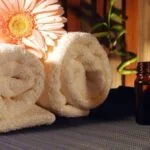Are you looking for the best aromatherapy books from a scientific approach? Aromatherapy has been gaining popularity as a complementary therapy for various health conditions, but it is essential to understand the scientific basis behind its effectiveness. In this article, we will delve into the world of aromatherapy, exploring its chemistry, pharmacology, evidence-based use in medicine, and top recommended books by experts in the field.
Aromatherapy is the practice of using essential oils extracted from plants to improve physical, mental, and emotional well-being. While it has been used for centuries, modern science has started to unravel the mechanisms behind its therapeutic effects. Understanding the chemistry of essential oils is crucial in comprehending how they interact with the body and produce specific physiological and psychological responses.
As we explore aromatherapy from a scientific perspective, we will also discuss its role in evidence-based medicine and how research impacts health and well-being. Additionally, we will critically review scientific studies on aromatherapy to separate fact from myth and provide insights into its potential benefits. By embracing aromatherapy through a scientific lens, readers can gain a deeper understanding of this holistic practice and make informed choices about their health and well-being.
Understanding the Chemistry of Essential Oils
The Basics of Essential Oil Chemistry
Essential oils are complex combinations of organic compounds derived from plants through processes like distillation or cold pressing. These oils contain a variety of chemical components, including terpenes, alcohols, esters, and phenols, among others. Each essential oil has a unique chemical composition that influences its aroma and potential therapeutic properties. Understanding the chemistry of essential oils is crucial for comprehending how they interact with the body and how they can be used effectively in aromatherapy practices.
Key Chemical Components and Their Effects
Some of the key chemical components found in essential oils include limonene, linalool, menthol, and eugenol. These compounds have been studied for their potential health benefits, such as anti-inflammatory, antimicrobial, and analgesic properties.
For example, linalool has been shown to have calming effects on the nervous system, making it a popular choice in essential oils used for relaxation and stress relief. By delving into the specific chemical makeup of essential oils, practitioners can better understand how different oils may be beneficial for specific health concerns.
Scientific Resources on Essential Oil Chemistry
For those looking to deepen their knowledge of essential oil chemistry from a scientific perspective, there are several books that come highly recommended by experts in the field. “The Chemistry of Aromatherapeutic Oils” by E. Joy Bowles is a comprehensive guide to understanding the chemical composition of essential oils and their potential therapeutic actions.
Another valuable resource is “Essential Oil Safety” by Robert Tisserand and Rodney Young, which provides detailed information on the chemical constituents of essential oils and their safety considerations.
By exploring these resources and gaining a deeper understanding of essential oil chemistry, practitioners can enhance their ability to use aromatherapy in evidence-based medicine and make informed decisions about which essential oils to incorporate into their wellness routines. Understanding the intricate chemistry behind essential oils allows for a more scientific approach to harnessing their potential benefits for health and well-being.
The Role of Aromatherapy in Evidence-Based Medicine
Aromatherapy has been gaining recognition as a complementary and alternative therapy in evidence-based medicine. This section will delve into the role of aromatherapy in evidence-based medicine, highlighting its potential benefits and limitations.
Aromatherapy in Clinical Settings
Aromatherapy is increasingly being integrated into clinical settings for its potential therapeutic benefits. The use of essential oils in healthcare settings, such as hospitals and clinics, is based on the belief that their aromatic compounds can have a positive impact on physical, mental, and emotional well-being. Research studies have shown promising results in using aromatherapy to alleviate symptoms such as pain, anxiety, and nausea among patients.
Evaluating Aromatherapy Research
When considering the role of aromatherapy in evidence-based medicine, it is essential to critically evaluate the existing research. While some studies have reported positive outcomes associated with aromatherapy, others have produced mixed or inconclusive results.
It is important to analyze the methodological rigor of these studies, including the choice of essential oils, dosages used, and control measures employed. By critically reviewing scientific studies on aromatherapy, healthcare professionals can better assess the potential efficacy and safety of integrating aromatherapy into patient care.
Challenges and Opportunities
Despite its growing popularity in evidence-based medicine, there are challenges associated with integrating aromatherapy into clinical practice. These challenges include standardizing practices across different healthcare settings, addressing safety concerns related to essential oil use, and ensuring proper training for healthcare providers who administer aromatherapy.
However, there are also opportunities for further research and exploration of the therapeutic potential of aromatherapy within evidence-based medicine. Continued scientific inquiry into this field may lead to a better understanding of how essential oils can be effectively used as part of a holistic approach to patient care.
Top Aromatherapy Books Recommended by Experts in the Field
When it comes to delving deeper into the world of aromatherapy from a scientific standpoint, having access to the best aromatherapy books is essential. These books provide valuable insights and knowledge on the therapeutic benefits of essential oils, their chemical compositions, and their potential impact on health and well-being. Experts in the field have recommended several must-read aromatherapy books that offer a comprehensive understanding of this ancient practice through a scientific lens.
One highly recommended book is “The Healing Intelligence of Essential Oils” by Kurt Schnaubelt. This book explores the science behind essential oils and their ability to support physical, mental, and emotional wellness. Schnaubelt delves into the chemistry of essential oils and how they interact with the body at a cellular level, providing readers with a deeper understanding of their therapeutic properties.
Another notable recommendation is “Aromatherapy Science: A Guide for Healthcare Professionals” by Maria Lis-Balchin. This book is geared towards healthcare professionals and provides an evidence-based approach to using essential oils in clinical settings. Lis-Balchin discusses the pharmacological aspects of aromatherapy, as well as its potential applications in treating various health conditions.
For those interested in critically reviewing scientific studies on aromatherapy, “Clinical Aromatherapy” by Jane Buckle is an invaluable resource. This book offers a comprehensive analysis of research findings related to the efficacy of essential oils in clinical settings, making it a go-to reference for anyone seeking evidence-based information on aromatherapy.
In addition to these recommendations, there are numerous other aromatherapy books that provide valuable insights from a scientific perspective, making them indispensable resources for both practitioners and enthusiasts seeking to deepen their understanding of this ancient healing art. By exploring these recommended books, individuals can gain a wealth of knowledge on the scientific basis of aromatherapy and its potential impact on health and well-being.
Critically Reviewing Scientific Studies on Aromatherapy
When it comes to understanding aromatherapy from a scientific approach, it is crucial to critically review the scientific studies on this alternative medicine practice. Aromatherapy has gained popularity for its potential health benefits, but it is essential to analyze the evidence to make informed decisions about its efficacy. There are several key considerations when evaluating scientific studies on aromatherapy.
Firstly, it is important to assess the research methodology used in studies related to aromatherapy. Look for randomized controlled trials (RCTs) and systematic reviews that provide strong evidence of the effectiveness of essential oils in addressing specific health concerns. Consider whether the studies include a large sample size and if they have been conducted in a rigorous manner to ensure the reliability of the results.
Next, it is essential to analyze the conclusions drawn from scientific studies on aromatherapy. Look for reputable sources such as peer-reviewed journals and academic publications that present balanced and objective findings. Pay attention to any potential biases or conflicts of interest that may impact the interpretation of the data.
Lastly, consider the overall quality of the evidence presented in scientific studies on aromatherapy. Are there consistent findings across multiple studies that support the use of essential oils for specific therapeutic purposes? It is also important to remain open-minded and consider conflicting evidence that may challenge conventional beliefs about aromatherapy.
In summary, critically reviewing scientific studies on aromatherapy is crucial for gaining a deeper understanding of its potential benefits and limitations. By analyzing research methodology, conclusions, and overall evidence quality, individuals can make well-informed decisions about incorporating aromatherapy into their health and wellness practices.
Exploring the Pharmacology of Aromatherapy
Understanding the pharmacology of aromatherapy is crucial in comprehending how essential oils interact with the body and produce therapeutic effects. The pharmacological basis of aromatherapy lies in the chemical components present in essential oils, which have the potential to elicit specific physiological responses.
These components can directly influence neurotransmitters, hormones, and other biochemical pathways in the body, leading to various health benefits. Studying the pharmacology of aromatherapy allows for a more informed and evidence-based approach to its use in healthcare.
Research has shown that certain essential oils have distinct pharmacological actions. For instance, lavender essential oil has been found to have anxiolytic effects, while peppermint essential oil demonstrates analgesic properties. Understanding the pharmacological mechanisms behind these effects can help clarify why certain essential oils are beneficial for particular conditions. Additionally, knowledge of pharmacology can guide healthcare professionals in recommending appropriate aromatherapy interventions based on individual patient needs.
When exploring the pharmacology of aromatherapy, it is important to consider safety aspects as well. Some essential oils may have contraindications or adverse effects when used improperly. This underscores the importance of understanding the pharmacokinetics and pharmacodynamics of essential oils, including their absorption, distribution, metabolism, and excretion within the body. By delving into the pharmacological aspects of aromatherapy, practitioners and enthusiasts can optimize its therapeutic potential while ensuring safe usage.
| Pharmacological Actions | Essential Oil(s) |
|---|---|
| Anxiolytic effects | Lavender |
| Analgesic properties | Peppermint |
Aromatherapy Research and Its Impact on Health and Well-Being
Aromatherapy, often considered a holistic approach to health and wellness, has gained popularity in recent years. However, the scientific basis of aromatherapy and its impact on health and well-being cannot be overlooked. Numerous studies have been conducted to investigate the therapeutic benefits of essential oils and their effects on physical, emotional, and mental well-being. Understanding the impact of aromatherapy research is crucial in ensuring that the practice is embraced from a scientific perspective.
Experts in the field of aromatherapy recommend several books that delve into the scientific approach to aromatherapy. These books provide valuable insights into the chemistry of essential oils, their pharmacological properties, and their potential role in evidence-based medicine. Here are some of the best aromatherapy books from a scientific approach recommended by experts:
- “The Chemistry of Essential Oils” by David G. Williams
- “Evidence-Based Essential Oil Therapy” by Scott A Johnson
- “Aromatherapy Science: A Guide for Healthcare Professionals” by Maria Lis-Balchin
These books offer readers a comprehensive understanding of the scientific basis of aromatherapy, making them essential resources for individuals interested in exploring the therapeutic potential of essential oils from a research-driven perspective.
Furthermore, aromatherapy research has significantly impacted health and well-being by contributing to evidence-based practices in healthcare. Studies have shown that certain essential oils possess antimicrobial, anti-inflammatory, and analgesic properties, which can be beneficial for various health conditions. The growing body of research on aromatherapy has opened up new possibilities for integrating complementary therapies into conventional medical treatments, ultimately improving patient outcomes and quality of life.
Conclusion
In conclusion, embracing aromatherapy from a scientific perspective allows individuals to explore the therapeutic benefits of essential oils with a greater understanding of its chemical composition and evidence-based effectiveness. By delving into the chemistry of essential oils, individuals can gain insight into how these natural compounds interact with the body to promote health and well-being.
This scientific approach also involves critically reviewing studies on aromatherapy to distinguish reliable information from anecdotal claims, leading to a more informed and educated use of essential oils.
For those interested in delving deeper into the world of aromatherapy from a scientific standpoint, there are several top-rated books recommended by experts in the field that provide valuable insights. These resources offer comprehensive knowledge on the pharmacology of aromatherapy and its role in evidence-based medicine, making them indispensable tools for anyone seeking a deeper understanding of this holistic practice.
As research on aromatherapy continues to expand, its impact on health and well-being becomes increasingly apparent. From relieving stress and anxiety to aiding in sleep quality and pain management, aromatherapy has demonstrated its potential as a complementary therapy in various healthcare settings. Embracing aromatherapy from a scientific perspective not only enhances our understanding of its benefits but also opens doors to further exploration and innovation in harnessing the power of essential oils for holistic wellness.
Frequently Asked Questions
Is There Any Scientific Evidence for Aromatherapy?
There is some scientific evidence for the effectiveness of aromatherapy in certain cases. Aromatherapy has been studied for its potential to reduce anxiety, improve sleep quality, and alleviate certain types of pain. However, more research is needed to fully understand its benefits.
What Is the Best Book on Aromatherapy?
It’s difficult to pinpoint the single “best” book on aromatherapy, as different books may cater to different preferences or levels of expertise. Some popular choices include “The Complete Book of Essential Oils and Aromatherapy” by Valerie Ann Worwood and “The Healing Intelligence of Essential Oils” by Kurt Schnaubelt.
Is Essential Oils Science or Pseudoscience?
Essential oils can be considered a combination of science and pseudoscience. While there is scientific evidence supporting some claims about their benefits, there are also many exaggerated or unsubstantiated claims in the industry. It’s important to approach essential oils with a critical eye and rely on reputable sources for information.

Are you looking for a natural way to improve your health and wellbeing?
If so, aromatherapy may be the answer for you.





